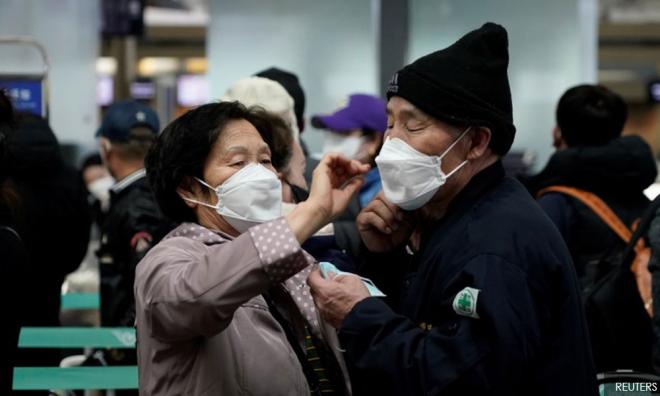
With daily reports showing the serious spread of Covid-19, it is necessary to expand the discussion of potential solutions to the crisis.
In the first of two pieces, I am focusing on how social capital can be a force to reduce the spread of the virus. I use the Italian word ‘forza’; so apt in these uncertain times as it speaks to the fortitude that society is showing in the face of the ongoing hardships of Covid-19.
Rethinking approaches
The responses to this unprecedented period in our lifetimes reflect long distrust in governance and political institutions in Malaysia – eroded by corruption (not least of which is 1MDB), inane comments and behaviour by politicians, and importantly, long-standing practices of division that have seeped into the psyche where the rule of law, seen to be selectively enforced, is not to be respected and government is for some, not all.
There is also a tendency to make people heroes and label others as enemies, to see situations in black and white, or even worse through a ‘blame game’ tinted by racialised lens. The practice of pitting people and groups against each other is deeply embedded.
It is easy to lash out, to find fault with perceived uninformed people who have different mindsets and understandings, forgetting the deep-rooted weaknesses in the education system and prevailing problems of misinformation and mistrust on social media.
Yes, people have made some serious mistakes and should be held responsible when this affects others. More often than not, however, judgements of behaviours are tainted with ethnic and elitist biases and are reinforced by our own views of human nature and values we place on science and faith. Fear, anxiety, suspicion and anger intertwine with hope, resilience, respect and (different) logics.
In reflecting on recent developments, it is increasingly clear that there needs to be a broadening of approaches to this crisis. For those of us who study politics and governance, there is an appreciation of what government cannot do – and sadly, events in the past week have showcased many of these deficiencies firsthand. How the Muhyiddin Yassin government came into power, the lack of public trust, their lacklustre and uncoordinated responses have undermined confidence.
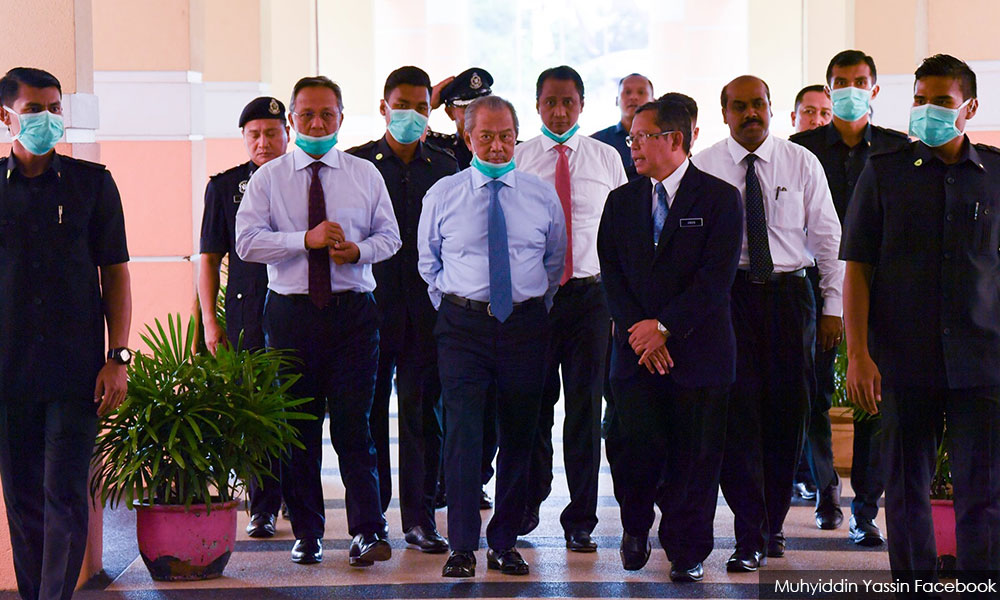
Distrust in the Malaysian government has been building up over decades, with previous governments, including the Pakatan Harapan government, feeding on divisions. Now more than ever, the hard work of the health professionals, police officers, and civil servants need more support. While a law-and-order approach is necessary – including a limited and clearly defined role for the professionals in military to assist to address behaviour and curtail crime – it needs to be complemented with other measures.
The central argument I present in this first piece is that the country’s existing social capital – trust, networks and organisational ties – needs to be harnessed to not only flatten the curve of Covid-19, but to move the country away from the deeply divisive politics that has made the task of crisis management daunting and even deadly. This will involve putting aside stereotypes, routinised practices of bringing others down and reaching out across traditional divides.
Recognising precarity
Let me start with two important observations, Malaysia has a serious problem in terms of precarity, insecurity in incomes and livelihoods. We know this from ongoing policy discussions involving poverty, the “Bottom 40” and the high level of personal household debt. We also know this from observing conditions – the number of people who survive on daily wages, those who live away from home in crowded hostels where social distancing is not possible, and those reliant on subsidies for food.
The need for a social safety net is pressing during this crisis, and government responses to date have failed to effectively address. These issues should be understood as needs-based, not through the lens of race – as is the case with Covid-19 which affects all communities, so will the impact of it. Some possible government responses will be the focal point for my second piece. My worry here is about how a crisis such as Covid-19 can tear at already a frayed social fabric, lead to heightened crime and social tensions. This calls for society intervention, developed below.
To illustrate social conditions, I use the survey data taken from the fifth wave of the Asian Barometer Survey (ABS) conducted in April and May last year, a national sample representative of all Malaysians. The figures are a wake-up call - 82% of Malaysians were worried about a potential loss of income, of these almost half 48% were ‘very worried’.
What is even more revealing is the responses to the potential impact of a loss of income, with 88% considering this matter serious, and 45% - again almost half the country – stating that they would have serious problems coping. In a context where there has been rapid urban migration, persistent low wages, strain on traditional family structures, and widening social inequalities, these numbers should not be a surprise.
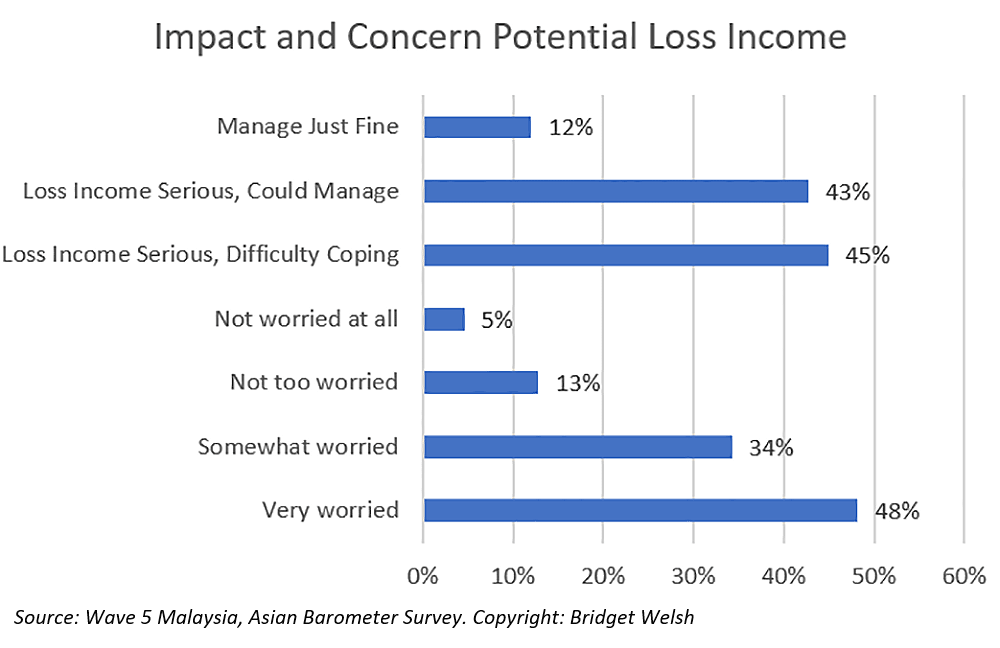
This economic insecurity is reinforced by social vulnerability. The ABS asked Malaysians whether they have networks to reach out to if they needed help. Nearly a third, 28%, said they had no one – yes no one – with another 41% stating they had a ‘few people’. Only a third had adequate social networks for assistance. You add on the impact of the declining economy, threats to health and emotional well-being and the loss of livelihoods, we can understand the seriousness of Covid-19 beyond who and who does not have the virus.
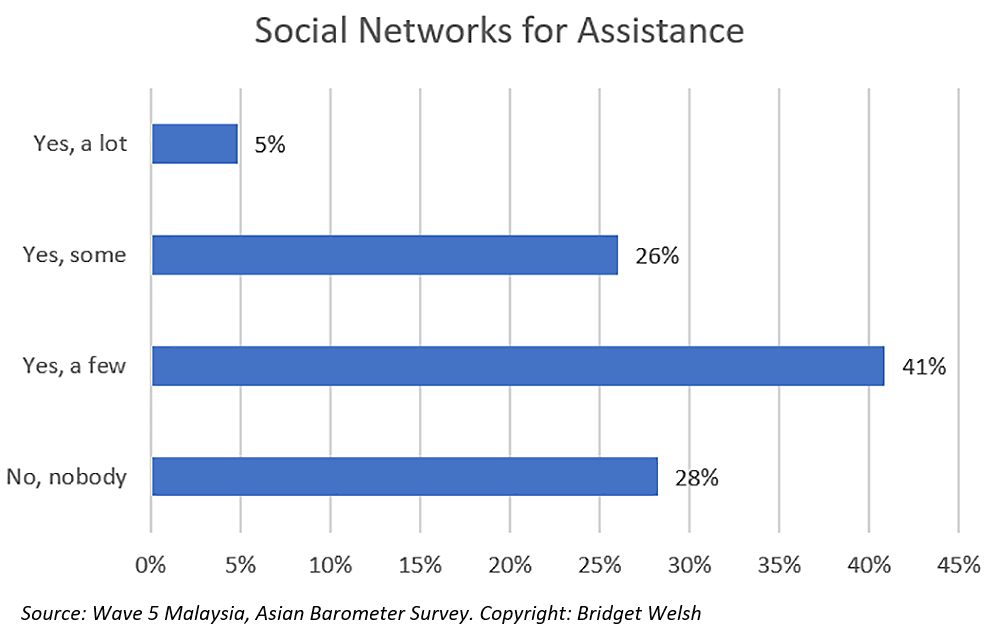
Religious engagement
The second observation is the central role that religion has played in the evolution of Covid-19 in Malaysia. Attention has focused on clusters that have emerged - churches and tabligh events in mosques, with religion unfairly getting the blame for spreading the virus. The rejection of science and sound health policy advice by some religious leaders has not helped.
This said, the spread of Covid-19 through faith networks is understandable. The ABS finds that Malaysia is a deeply religious society – across communities, with the majority reporting either ‘very’ or ‘moderately’ religious. Self-reported levels of religiosity show striking similarity across communities, with Indian Malaysians an exception in how they see their faith practices, as 40% consider themselves ‘very’ religious.
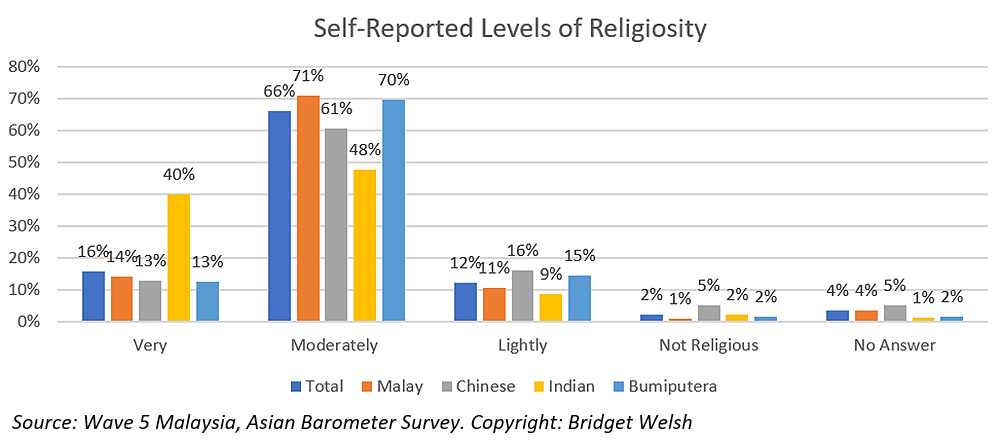
At the same time, large shares of Malaysians that report joining organisations join religious ones – religious classes, faith groups and more institutionalised religion organisations. Others join professional, voluntary, residential and community and student/alumni organisations, among others. Many join more than one.
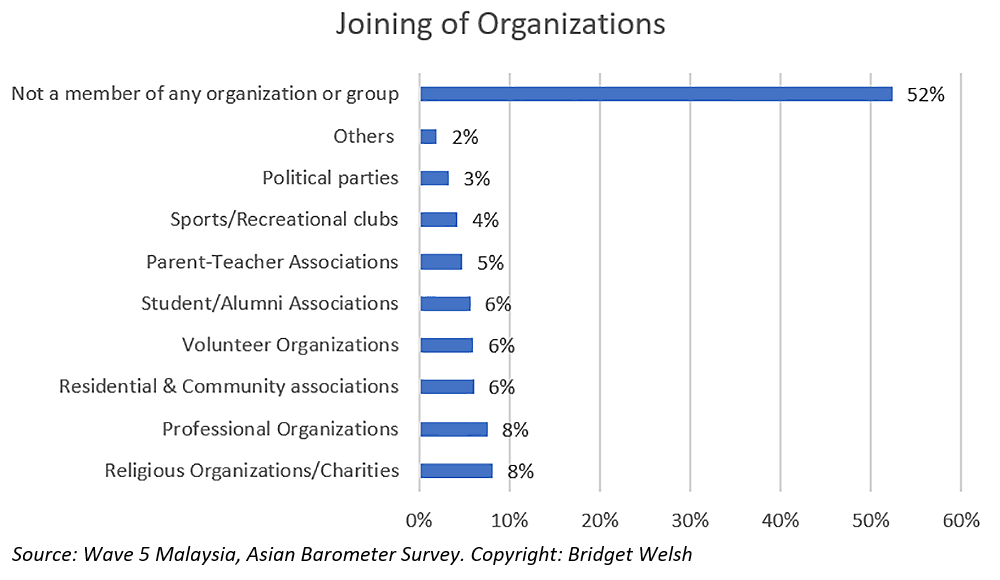
These organisations and concern with social welfare that is tied to all the religious faiths can serve as a foundation for addressing Covid-19. People are more likely to act responsibly when the message is delivered through trust networks. Political parties use these social networks and social influencers in their election campaigns. The same tactics can be mobilised now in this period of crisis, to get messages across and ameliorate the precarity people are facing.
Social trust deficits
The task ahead is not an easy one. Most Malaysians do not trust each other, with only 39% believing most people are trustworthy. Trust in relatives and neighbours is higher, 88% and 73% respectively. Inter-ethnic trust – despite heightened racialised rhetoric has been increasing over the past decade in the ABS findings, although trust remains highest within ethnic communities. These trends provide opportunities to engage, to change behaviour and build community – to work with ethnic leaders, local resident associations, religious leaders, professional groups and more.
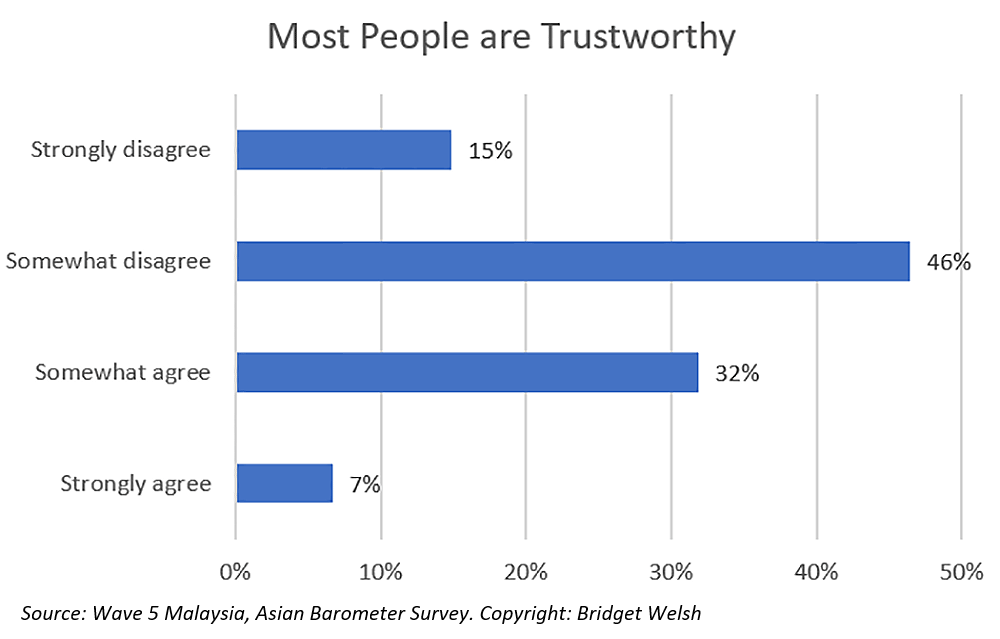
Malaysia has at its disposal a social arsenal for the crisis ahead. We read about those that are disobeying the (changing) lockdown provisions.
We need to keep in mind that many more are doing their part. For every person who is going outside, there are more at home. For every person who is disobeying orders, there are more that are following them. For every person who is lying to health practitioners and disregarding health advice, there are others who are putting themselves in the hands of doctors and nurses, even facing the prospect of dying without loved ones nearby. Importantly, even as people are at home, they are reaching out and many want to help.
A viable and needed way of strengthening the response is to actualise on the capital that exists in Malaysian society – to treat networks of social capital as an asset in crisis management.
Conditions should be created to allow this to happen as best it can in a situation of lockdown. Allowances for all political representatives should be given, and politicians, civil servants, and ordinary citizens can work with the social capital that exists– and in the process strengthen it – as the reality is that conditions ahead are going to need as much trust and support as possible.
Malaysians are creative and the new context offers new possibilities - virtually working through the financial and other essential services operations, through cooperatives with grocery stores and the use of new technology apps and in personal outreach to vulnerable communities.
Civil society has already started. Movements like #kitajagakita have been formed, but efforts can be enhanced by working with social leaders in existing organisations more broadly. Some religious groups are also moving to provide support, as faith needs is blended with action. To prevent groups operating in silos, there need to be efforts to strengthen ties across organisations and personal networks, to not reinforce cleavages. This involves building both bonding capital – existing ties within groups – and bridging capital – ties with other groups.
Individuals can do their part from home - reconnect with classmates or old colleagues, reach out to those you know who need help even modestly, to remember that ordinary people do indeed have power and in sharing this power, there is common humanity and potential greater security in these uncertain times.
Forza!
BRIDGET WELSH is a Senior Research Associate at the Hu Feng Centre for East Asia Democratic Studies, a Senior Associate Fellow of The Habibie Centre, and a University Fellow of Charles Darwin University. She currently is an Honorary Research Associate of the University of Nottingham, Malaysia's Asia Research Institute (Unari) based in Kuala Lumpur. - Mkini



No comments:
Post a Comment
Note: Only a member of this blog may post a comment.